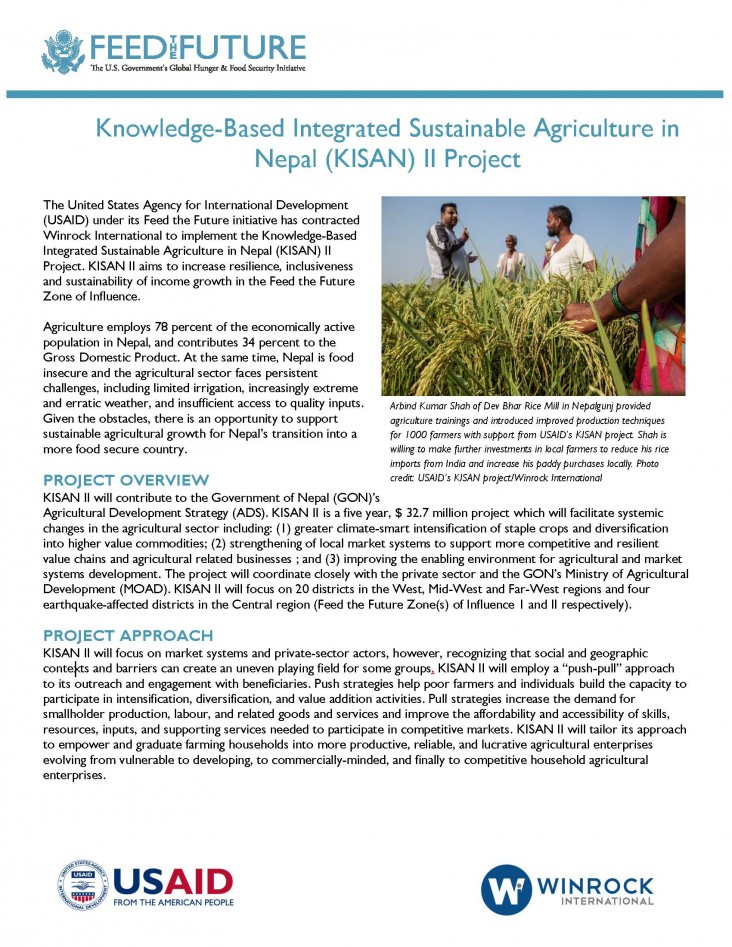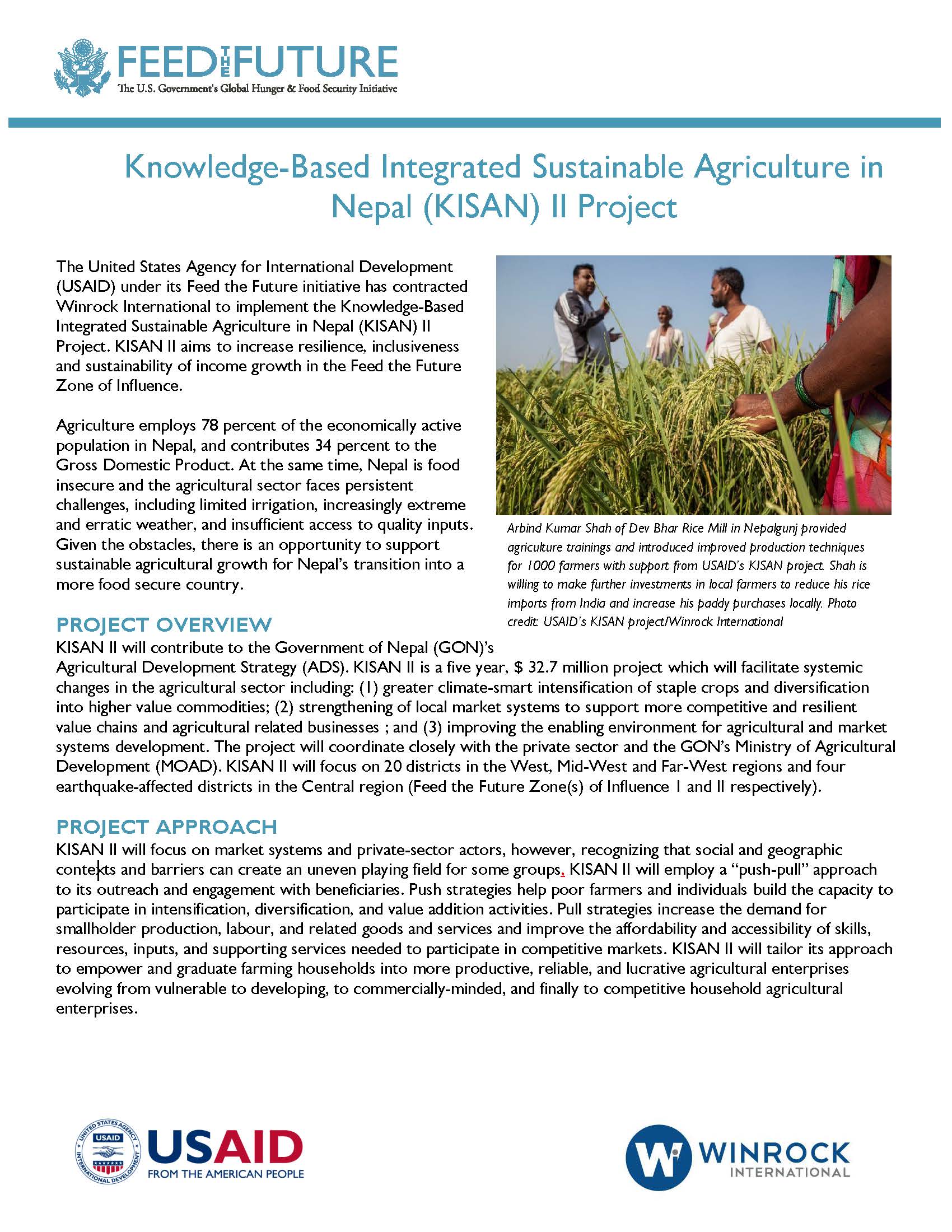Speeches Shim

PROJECT OVERVIEW
KISAN II will contribute to the Government of Nepal (GON)’s Agricultural Development Strategy (ADS). KISAN II is a five year, $ 32.7 million project which will facilitate systemic changes in the agricultural sector including: (1) greater climate-smart intensification of staple crops and diversification into higher value commodities; (2) strengthening of local market systems to support more competitive and resilient value chains and agricultural related businesses ; and (3) improving the enabling environment for agricultural and market systems development. The project will coordinate closely with the private sector and the GON’s Ministry of Agricultural Development (MOAD). KISAN II will focus on 20 districts in the West, Mid-West and Far-West regions and four earthquake-affected districts in the Central region (Feed the Future Zone(s) of Influence 1 and II respectively). KISAN II will focus on market systems and private-sector actors, however, recognizing that social and geographic contexts and barriers can create an uneven playing field for some groups, KISAN II will employ a “push-pull” approach to its outreach and engagement with beneficiaries. Push strategies help poor farmers and individuals build the capacity to participate in intensification, diversification, and value addition activities. Pull strategies increase the demand for smallholder production, labour, and related goods and services and improve the affordability and accessibility of skills, resources, inputs, and supporting services needed to participate in competitive markets. KISAN II will tailor its approach to empower and graduate farming households into more productive, reliable, and lucrative agricultural enterprises evolving from vulnerable to developing, to commercially-minded, and finally to competitive household agricultural enterprises.
PROJECT APPROACH
KISAN II will include a Partnership and Innovation Fund (PIF), including a grants program, through which the project will buy down the risk for lead firms to upgrade market strategies, create mutually beneficial contract farming and outgrower schemes, and catalyze the involvement of women and disadvantaged groups through push interventions, complemented by a focus on market pull in key commodity supply chains.
PROJECT OBJECTIVES
The goal of KISAN II project will be achieved through activities under five components, listed below;
- Improve the productivity of selected agricultural market systems
- Strengthen competitiveness, resilience, and inclusiveness of selected agricultural market systems.
- Strengthen the enabling environment of selected agricultural market systems.
- Enable vulnerable communities to act on business opportunities within selected market systems.
- Apply Collaboration, Learning, and Adaptation to market systems development.
PROJECT ACTIVITIES
- Increase adoption of profitable, productivity-enhancing, and climate smart technologies.
- Strengthen lead firms and other SMEs to support selected market systems.
- Enhance financial services markets and infrastructure that serve selected market systems.
- Build capacity for GON policies and regulation to support market systems development.
- Enhance literacy and business development skills.
EXPECTED OUTCOMES
- Increased yields and volumes of selected crops.
- Increased percentage of smallholders, farmer cooperatives, and farmer associations able to meet market quality and standards requirements.
- Increased value of new private sector investment in selected agricultural market systems.
- Strengthened institutional and human resource capacity of the GON and private sector to support market systems development.
- Platform established for collaboration and learning among KISAN II stakeholders.
For additional information, please visit www.feedthefuture.gov or www.usaid.gov/nepal or www.winrock.org


Comment
Make a general inquiry or suggest an improvement.